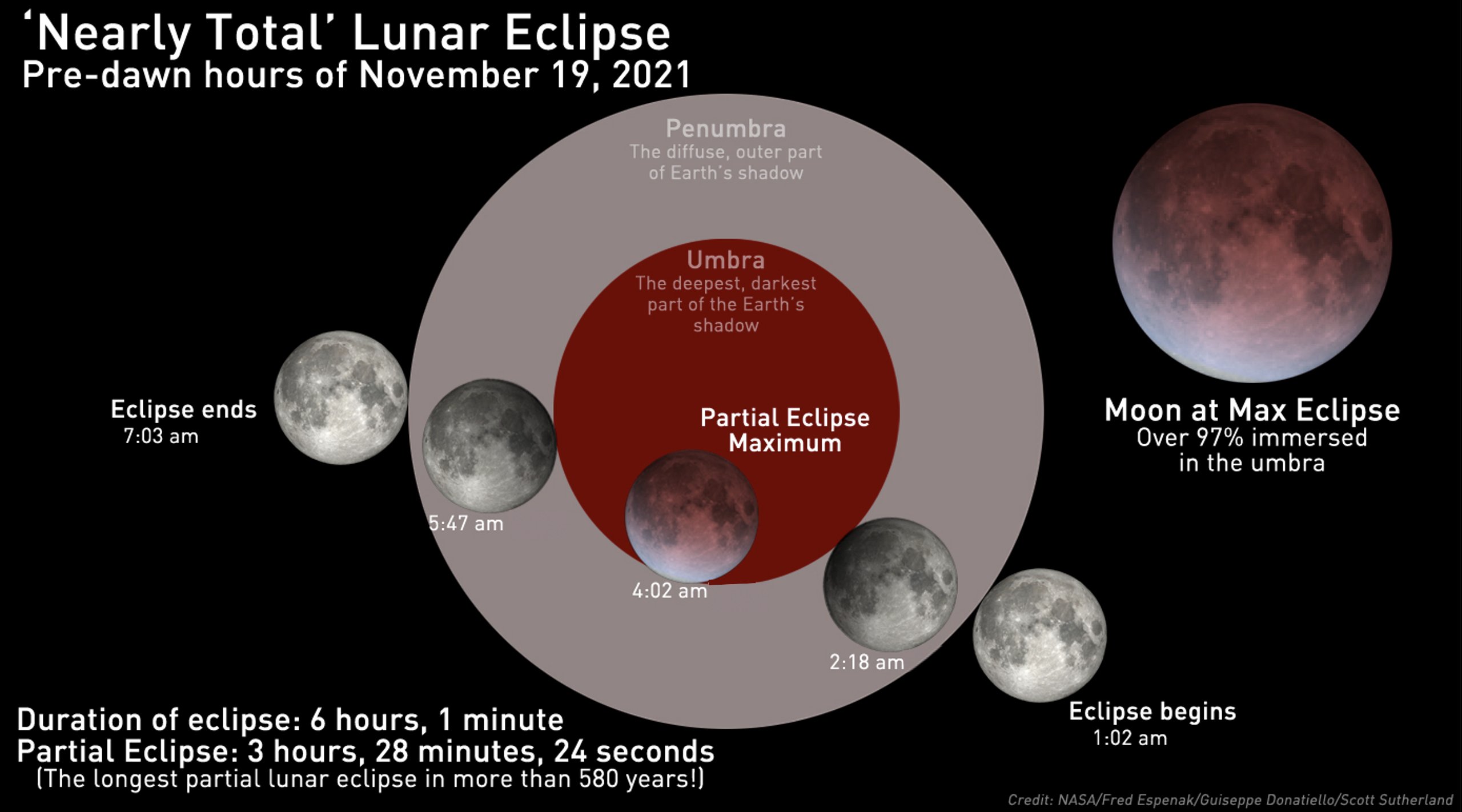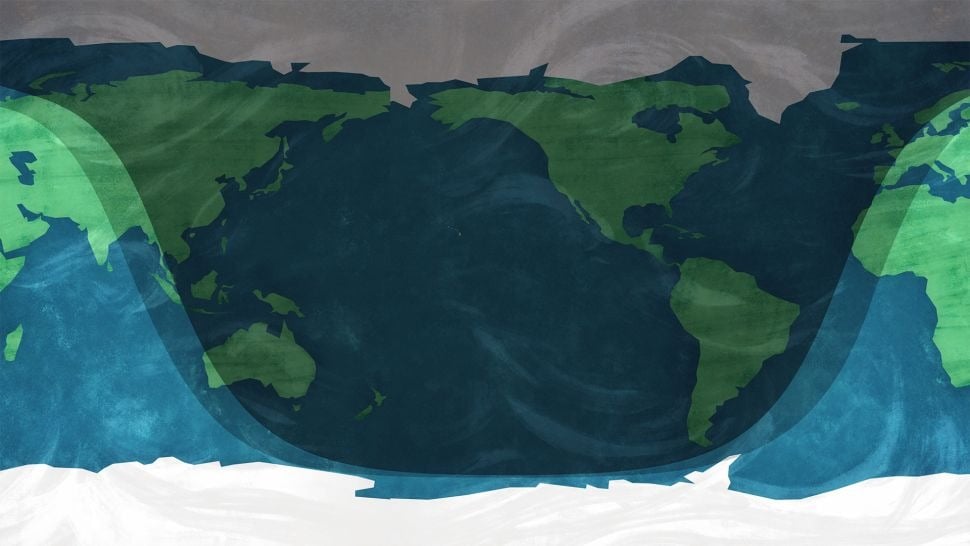2021's Final Lunar Eclipse Is A Must-See Event!
Language
Reading Level
Listen to Article

Partial lunar eclipses are typically not considered as newsworthy as total lunar eclipses. However, the one taking place overnight on November 18 and 19, 2021, is definitely worthy of a mention. It is the year's final partial lunar eclipse — and the longest one in 1000 years. With 97 percent of the Moon slipping into Earth's shadow, the celestial event also promises to be spectacular. The eclipse will be visible to a large area of the globe. Some of the best views will be reserved for North American residents.
NASA officials estimate the almost-total eclipse to last about 3 hours, 28 minutes, and 23 seconds. It will begin at about 2:19 a.m. EST on November 19 (11:19 PST on November 18), reach its maximum around 4 a.m. EST (1 a.m. PST), and end at 5:47 a.m. EST (2:47 a.m. PST). At maximum eclipse — when most of the Moon's face will be covered by the Earth's shadow — the satellite will take on the spooky red hue usually seen during total lunar eclipses.

The November eclipse's long duration is the result of a "micromoon." During the eclipse's peak point, the Moon will be just 41 hours from apogee — its farthest point from Earth. The distance causes our satellite to travel slower along its orbit and take longer to pass through Earth's shadow. In contrast, the May 2021 eclipse, which occurred just 9 hours after perigee — the Moon's closest distance to Earth — featured a supermoon.
A partial lunar eclipse happens when our planet comes in between the Sun and a full Moon. Since the three are not perfectly aligned, only part of the Moon's visible surface is covered by the Earth's shadow. Unlike solar eclipses, the celestial event can be viewed without any protective glasses.
While US residents will have to stay up late or rise early to view the partial eclipse, it may be worth losing sleep over. That's because the next partial lunar eclipse of this length will not occur until February 8, 2669!
Resources: Space.com, LiveScience.com. Earthsky.org, NASA.org

Get the Workbook for this article!
Workbook contains: Article, Reading Comprehension, Critical Thinking Questions, Vocabulary in Context (+ answers), Multiple Choice Quiz (+ answers), Parts of Speech Quiz (+ answers), Vocabulary Game (+ answers)Cite Article
Learn Keywords in this Article
132 Comments
- tysonisepic157about 4 yearsbruh imma be asleep at that point
- talkaboutbrunoabout 4 yearsI have to get up at 2:00 to 5:00 in the MORNING to see it!????
- astromochiabout 4 yearsOoh sweet! This is on the day I have a This Day in history presentation in History :))
- doglover2012about 4 yearsAwesome! I would never think an eclipse would happen right about now!
- d_dog33about 4 yearswow good to know
- lill5graceabout 4 yearsI am actually learning about this right now in school and I find this interesting to learn about.
- tododeku360about 4 yearsI am too at UA!
- clystalabout 4 yearslill5grace you are so lucky to be learning about this in school.
- cabingirl10about 4 yearsSo cool! I love these sort of things! The solar system is a beautiful, wonderful, place! So exiting!🌌
- littlejangoabout 4 yearsi was driving across the u.s. for the second time, and i woke up at 3 AM to see an eclipse but i forget if it was a lunar or solar eclipse. but was still super cool!!!
- bored_stariabout 4 yearsThat would be a lunar eclipse, because solar eclipses require the sun as the name suggests :).
- adahmiabout 4 yearsI love seeing eclipses! They are so cool!
- adahmiabout 4 yearsWOW!! So cool! I have seen a solar eclipse and that was amazing, though we did have to travel a long way to see the whole eclipse. It was still fun to see, and we got to see the cool scenery along the way.
- zarkinpantsabout 4 yearsIt's amazing! I like it!